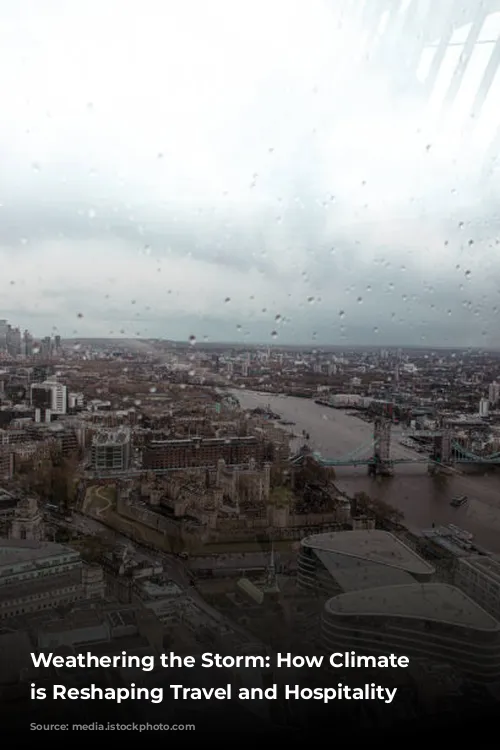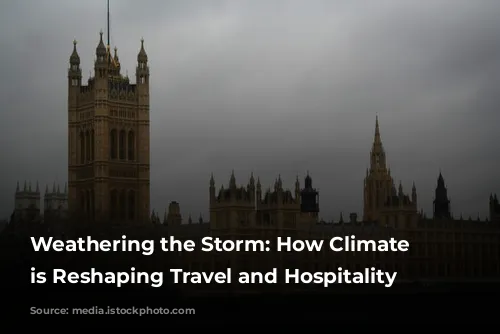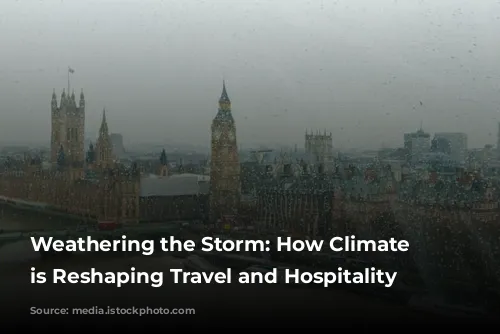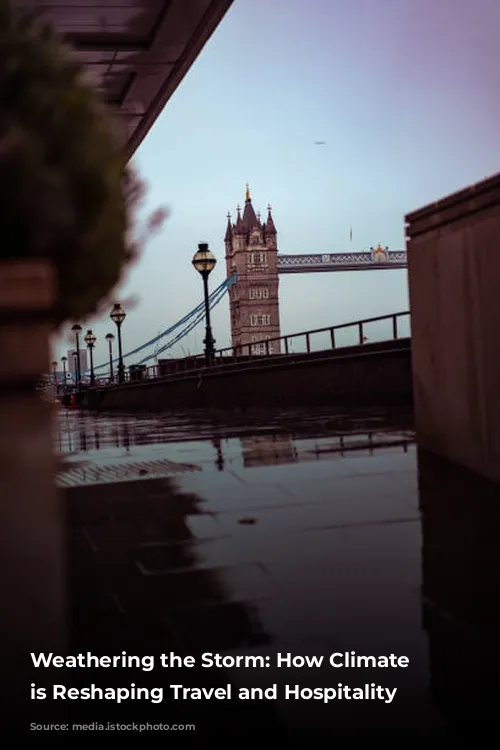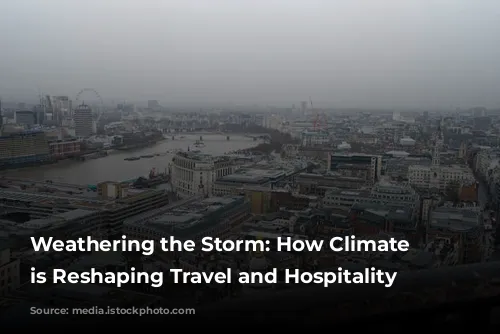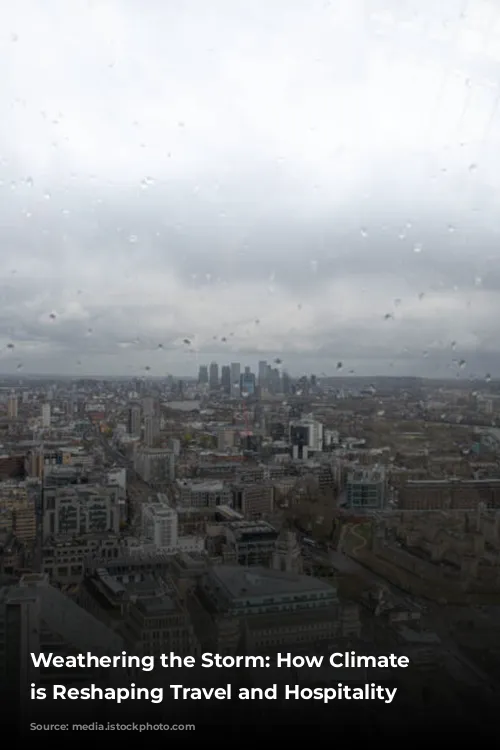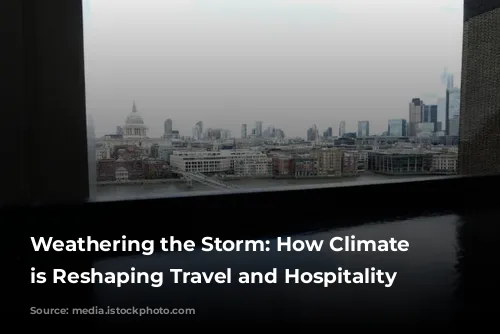Weather, the ultimate conversation starter, has become a headline-grabbing topic, especially for the travel and hospitality industry. The delicate dance between our vacation plans and Mother Nature’s whims has never been more apparent. This year’s winter holidays saw a surge in interest surrounding the impact of climate change on travel experiences, especially the lack of snow in traditional ski destinations.
Skiing on Thin Ice: The Snowless Winter
The tourism and hospitality industry thrives on predictable weather, with sun-seekers flocking to sunny shores and snow enthusiasts venturing to snowy mountain peaks. When the weather fails to meet expectations, it can leave travelers disappointed and even lead to shortened trips. This winter, Europe experienced a severe heatwave, leaving many skiers frustrated.
While the lack of snow didn’t completely decimate the winter tourism industry, it did have a noticeable impact. In Switzerland, for example, the number of overnight stays in mountain regions remained consistent compared to the previous year. However, the number of mountain day trips took a hit, dropping by 8%.
The impact of the snow shortage wasn’t uniform across all sectors. Interestingly, city hotels in Switzerland saw a surge in bookings, suggesting some travelers opted for urban adventures over snow-less mountains.

Snowmaking Machines and Beyond: Adapting to a Changing Climate
To combat the lack of snow, destinations have become increasingly innovative. Some resorts offer summer activities like mountain biking, while others have resorted to drastic measures like helicoptering snow onto the slopes, which, unfortunately, proved ineffective. Even snow cannons, energy-intensive machines, have struggled to keep up with the warm temperatures.
Researchers from the University of Basel predict that even high-altitude ski resorts may heavily rely on snowmaking machines to maintain a 100-day winter season. This raises concerns about the environmental impact of skiing and necessitates the exploration of more sustainable and diverse offerings to attract travelers.
While mid-January saw a welcome snowfall, offering a glimmer of hope for the ski season, the industry recognizes the need for rapid adaptation. Ski resorts must offer a diverse range of activities, catering to visitors regardless of snow conditions, as ski seasons will shorten in the coming years.
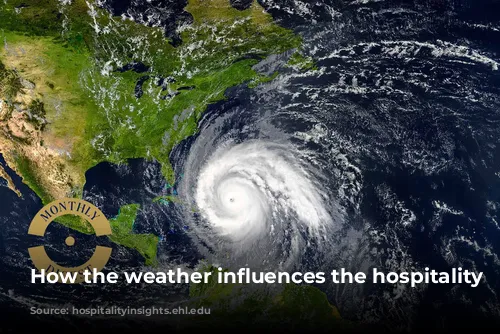
Beyond Snow: Weather’s Impact on Travel
The lack of snow isn’t the only weather-related challenge facing the travel industry. Disruptive events like the winter storm that hit the US in late 2022 caused significant travel disruptions, grounding flights and impacting the livelihoods of many industry stakeholders. These events highlight the growing importance of weather and climate on the travel and hospitality sectors.

Weathering the Storm: Technological Solutions
The unpredictable nature of weather has spurred a wave of technological innovation. Weather tech startups are leveraging advanced data analytics and artificial intelligence (AI) to provide more accurate and timely weather forecasts. These predictions can help businesses prepare for and mitigate weather-related risks, saving both lives and money.
Companies like Tomorrow.io utilize “weather of things” technology, combining weather data with various other data points, to offer tailored predictions for industries like aviation, transportation, sports, and hospitality.
Salient Predictions uses AI, Internet of Things (IoT), and remote sensing to translate complex weather data into actionable forecasts for the agriculture, energy, and food industries.
Jua, a Swiss startup, is developing customized weather models for various sectors using extensive weather and geospatial data.
These advancements showcase the power of technology to help businesses navigate the challenges posed by changing weather patterns.
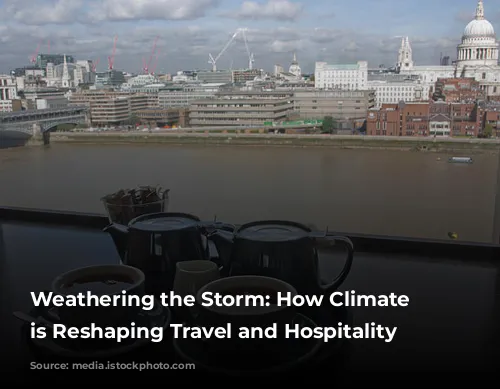
Adapting to a Climate-Conscious World
The travel industry is also adapting to a growing climate-conscious consumer base. Platforms like CHOOOSE offer businesses tools to measure and mitigate their carbon footprint, providing travelers with options for carbon offsetting.
Companies like Planalytics are using weather data to better understand consumer demand, particularly in sectors like food delivery, enabling them to optimize inventory management and pricing.
Even travel insurance is evolving to address the challenges posed by extreme weather. Sensible Weather offers policies to reimburse travelers for disrupted trips due to adverse weather conditions.
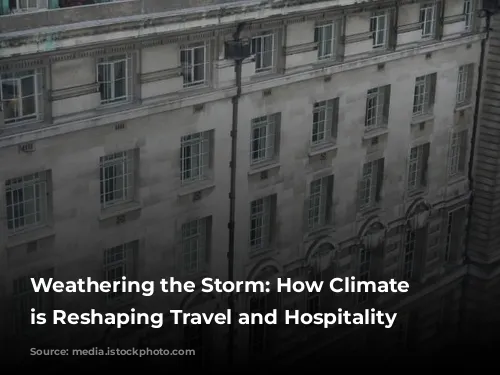
Embracing Flexibility and Innovation
The changing travel landscape necessitates flexibility and innovation from industry players. Platforms like Aidaptive utilize AI-powered engines to personalize booking experiences for each guest, catering to individual preferences and ensuring satisfaction.
Euromonitor’s Global Consumer Trends 2023 report highlights the growing desire for flexible, affordable, and enjoyable travel experiences.
The impact of climate change extends beyond travel plans, even influencing our emotional well-being. The report emphasizes the importance of mindfulness and self-care, suggesting that businesses can incorporate these practices into their operations to enhance the overall travel experience.
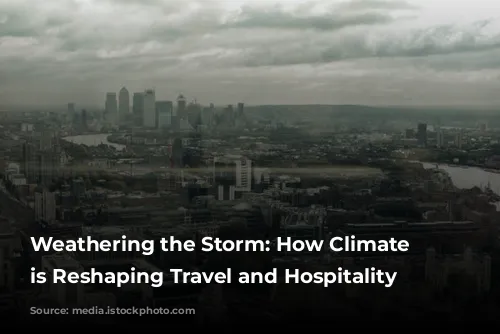
Embracing the Future: Weather-Ready and Climate-Conscious
As climate change continues to reshape our world, the travel and hospitality industry must embrace a future that is weather-ready and climate-conscious. This includes:
- Adapting to changing weather patterns: Offering diverse activities to cater to a variety of conditions and investing in sustainable practices.
- Embracing technology: Utilizing advanced data analytics and AI to enhance weather forecasting and inform decision-making.
- Meeting evolving customer needs: Providing flexible travel options, transparent carbon footprint information, and personalized experiences that prioritize well-being.
By staying informed about climate change and embracing these innovative solutions, the travel and hospitality industry can weather the storm and emerge stronger, creating a more sustainable and fulfilling travel experience for all.
